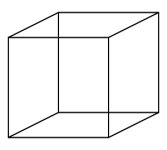Not that you'll ever comprehend, but, I collected real time keyed reports, along with the time stamp showing the reports were either concurrent with or immediately after stimulus presentation, from observers on whether there was or was not a sound presented at the time the sound was presented, and I've collected similar data on light sensation, taste sensation, touch sensation and smell sensation. Others have used my procedures to record from selected areas at the time of sensation physiological reports along motor reports of these sensations in animals and humans.
Damn its so tough when you don't have anything to offer but your own subjective, probably contaminated personal belief to counter isn't it. If you check the record you will find that the kind of objective data I've gathered is always more useful than the garbage you self report. In fact the kind of stuff I gathered, empirical data, is at the base of our scientific revolution. To the type of stuff you report we can thank for the dark ages.
In fact much experience has been converted into standards of measure, time, and place in Paris. In fact, as you pointed out, there is no color in light except when it is experienced by a being with light processing equipment. We've examined it and established standards for generation and perception of color which we can reference so we don't need to have silly discussions like red versus the experience of red.
One can argue, successfully I think, that much of our 'experience' is normalized by these standards so we can express what we mean when we say words describing it to those hearing who will understand exquisitely.

